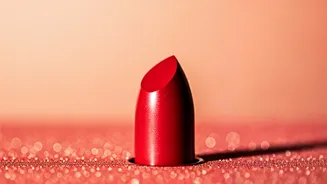The Acne Conundrum
Acne, a prevalent skin condition, is frequently misunderstood. Many people base their skin care practices on outdated information or unsubstantiated claims.
This article aims to clarify five widespread myths about acne, offering evidence-based insights. The dermatologist emphasizes that acne is often a complex issue, influenced by different factors. By dispelling misconceptions, people can better understand their skin and manage their skin conditions effectively. The goal is to empower readers with the knowledge to navigate the world of skincare confidently and make informed decisions about their skin health.
Food and Acne
One popular myth suggests that what someone eats directly causes acne. While this belief is widespread, the dermatologist debunks this claim. The reality is that the relationship between diet and acne is not straightforward. Although some studies suggest links between specific foods and acne in some individuals, such as dairy or high-glycemic foods, diet is generally not the primary cause. Skin health is more complex, involving various internal and external factors. A balanced diet supports overall well-being, but solely focusing on diet is an oversimplification. The expert advises taking a holistic approach to skin care.
Hygiene and Acne
Another common myth is that poor hygiene causes acne. This is partially correct, but it is not the sole reason for breakouts. Over-washing or aggressive scrubbing can strip the skin of its natural oils. This may disrupt the skin's barrier, which can worsen acne. Proper hygiene is crucial but shouldn't be excessive. Cleaning the face twice a day with a gentle cleanser is generally recommended. The key is to find a balance that removes dirt and oil without irritating the skin. Acne often stems from underlying causes, such as hormonal imbalances. A more nuanced approach is required for effective acne management.
Acne and Cosmetics
The use of cosmetics is often unfairly blamed for acne. The belief that makeup causes acne is another myth. The reality is that some products can contribute to breakouts. Non-comedogenic products are specifically formulated not to clog pores and are the best option. It is essential to choose products that suit your skin type. Regular cleaning of makeup brushes and applicators is also crucial, because they can harbor bacteria that contribute to skin issues. A smart choice of makeup can reduce the likelihood of skin problems, and a good skincare routine can help keep your skin in good condition.
Popping Pimples
The act of popping pimples is often a tempting quick fix, but a myth suggests this is a safe way to treat acne. In reality, popping pimples can worsen the condition. It can push the contents deeper into the skin. This can cause inflammation, infection, and scarring. It is best to resist the urge to pop pimples. The dermatologist suggests seeking professional help or using gentle, over-the-counter treatments that are designed for acne management. Effective treatments usually include ingredients like benzoyl peroxide or salicylic acid. Avoiding squeezing and using appropriate products are key steps for clear, healthy skin.
Acne at Any Age
A common belief is that acne is only a problem during adolescence. The reality is that acne can affect people of all ages, especially adults. Adult acne has different triggers than acne in teens. Hormonal changes, stress, and specific skincare products are all possible factors. The dermatologist emphasizes that adult acne requires a specific approach and treatment. There are many different types of treatments, including topical medications, oral medications, and lifestyle changes. A personalized approach and expert guidance are often necessary for managing acne successfully. People should understand that acne treatment evolves as one ages.














